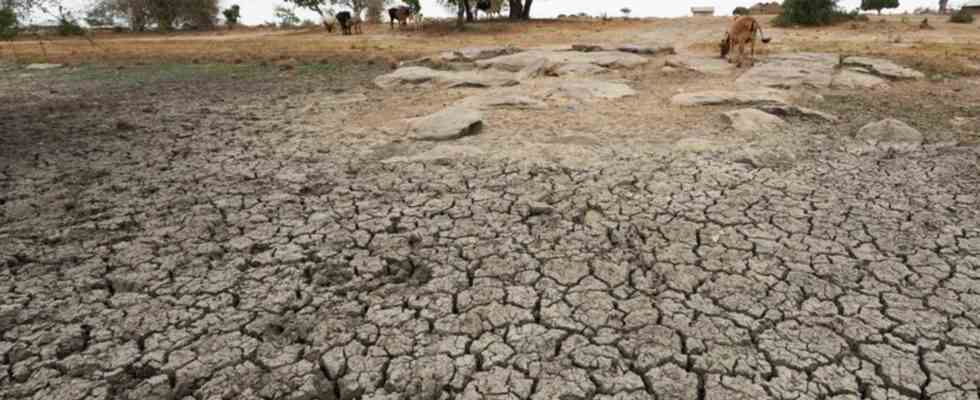climate
UN report: Number of droughts up 29 percent since 2000
Cattle forage for food in a dry field in Kenya. Photo: Dong Jianghui/XinHua/dpa
© dpa-infocom GmbH
The Bible says there have always been droughts. But climate change is exacerbating the situation. A new UN report describes the impact this has on millions of people.
Globally, the number and duration of droughts has increased by 29 percent since 2000. This is according to the UN drought report.
It was presented on Wednesday at the 15th World Soil Conference in West Africa’s Abidjan, the former capital and today’s economic hub of Ivory Coast. And global warming is likely to exacerbate the situation in many regions of the world. The report puts the economic damage caused by droughts at around 124 billion dollars (117 billion euros) for the years 1998 to 2017 alone.
“Land dries up, fertile soil turns to dust,” warned Ibrahim Thiaw, executive secretary of the International Convention for the Protection of Soils (UNCCD). “Droughts are among the greatest threats to sustainable development.”
But while the dramatic lack of water, loss of fertile land and persistent drought have so far mainly affected underdeveloped countries such as the Sahel, other regions are also increasingly affected. The day before, Thiaw had described the increasing droughts in Europe as a “wake-up call for Europeans”. “No country is immune to drought,” he said.
Droughts in Europe too
When people talk about drought, most people probably think of the spread of desert areas in the Sahel and the repeated famines after drought in the Horn of Africa, for example in Ethiopia and Somalia, where many people have been waiting in vain for rain for months.
In fact, according to the report, Africa is more affected by drought than any other continent. More than 300 drought events have been recorded there over the past hundred years, the report said. That is 44 percent of droughts worldwide. In addition, Africa south of the Sahara is experiencing the effects of climate change in a dramatic way. Extreme weather events such as drought are occurring more frequently and more intensely.
However, 45 major droughts were also recorded in Europe in the last century, affecting millions of people and causing total economic damage of 27.8 billion dollars. Around 15 percent of the land area and around 17 percent of the population in the EU are now affected by drought, according to the UN report. The annual economic losses in the EU and Great Britain now amount to nine billion euros a year.
In Germany, the north-east is affected
“Every year the world loses an area of fertile soil the size of Bulgaria,” said Jochen Flasbarth, State Secretary of the Federal Ministry for Economic Cooperation and Development (BMZ) in Abidjan. “We have to stop this. Without fertile soil there is no food.»
The balance sheets of the German weather service have not only shown temperature increases compared to earlier times, but also a lack of precipitation. Especially in north-eastern Germany, farmers have been complaining about drought problems for years. In April, for example, only 25 liters of rain per square meter fell there and increased the already existing precipitation deficit. The drought monitor of the Helmholtz Center for Environmental Research is already showing exceptional or extreme drought in the overall soil in large parts of Brandenburg, but also in regions of Lower Saxony.
According to the UN, almost 160 million children have been exposed to severe and prolonged drought this year alone, and more than 2.3 billion people worldwide have insufficient water supplies. According to UN estimates, by 2040 one in four children worldwide could be affected by water shortages.
The all-clear is not in sight: in 2050, more than three quarters of the world’s population could be affected by drought. According to the report, between 4.8 and 5.7 billion people are likely to live in areas where water is scarce for at least one month a year. This currently applies to 3.6 billion people.

